Tax included and shipping calculated at checkout
- Posted on
Lose Weight and Improve Brain… by Sleeping

Why do we need sleep? What happens in the brain when we sleep? What happens if we don’t get enough sleep, or if it’s at the wrong times? Studies have shown that sleep deprivation and dysregulation, such as occurs in shift work, leads to disease states, including:
- Chronic fatigue, impaired cognition and brain fog;
- Metabolic syndrome, diabetes and obesity; and
- Hypertension and heart disease.
It sounds like something simple: Just get more sleep. However, for many people, getting deeper more restful sleep has become elusive. It’s not just those who endure night shifts, but applies also to others that stay up late in front of their computers and phones.
Sleep researchers believe that sleep's primary goal is to restore the body. Muscle growth and repair, cleansing and detoxification, happen (almost entirely) during sleep. Allan Rechtschaffen's studies from the 1980s demonstrated that when rats were kept awake continuously, they all died within 32 days.
Brain development and plasticity depends on appropriate sleep cycles. Babies need to sleep 13–14 hours a day to intellectually develop. It’s how we grow a more intelligent brain! For adults the most commonly reported optimal sleep time for adults is 8 hours, but variations can go from 7 to 9 hours.
Dreaming Cycles and Sleep Architecture
The exact purpose of dreaming isn’t known yet, but dreaming may help the brain to process experiences, learnings and emotions. Technically called sleep architecture, our brains follow a pattern of REM (rapid eye movement) taking up 25% of sleep time, and NREM (non-rapid eye movement) taking up 75% of sleep time. This sequence generally follows a series of 90-minute cycles throughout a typical night's sleep.
The dreams of NREM slow-wave sleep are more logical and often include sensations, images and ideas relating to events of the day, whereas REM sleep is more emotional and chaotic.
During slow wave sleep, cerebral spinal fluid (CSF) flows rhythmically to wash through the brain and help flush away toxic, memory-impairing proteins. As people age and their cells become more acidic and hypoxic, more congested, and detoxification becomes less efficient. This is associated with increasing sensitivity to stress, as well as magnesium deficiency, and leads to a decline in ability to get a good night’s sleep with enough slow wave cycles. Many elderly have trouble sleeping more than 4 or 5 hours. This affects pulsing of CSF during sleep, leading to an accumulation of toxic proteins and a decline in memory abilities.
Slow wave NREM sleep can further be subdivided into 3 stages.
LIGHT - Stage 1 (N1) This is the phase between being awake and falling asleep. It is the lightest form of sleep predominantly with alpha (8-12Hz) brain waves.

MEDIUM - Stage 2 (N2) is when sleep really begins and people begin to become disengaged from their surroundings, the heart rate becomes regular, and body temperature tends to drop. The brain waves move a bit deeper into theta (4-8Hz).
DEEP - Stage 3 (N3) Stages 3 and 4 are now combined by researchers into Stage 3, with oscillations of spindle 4-15Hz and delta 1-4Hz brain waves. In this phase less than half the brain waves are delta, which are high amplitude slow brain waves comprising the deepest sleep, and the rest are spindles, which are burst-like signals. During this phase blood pressure drops, breathing slows, and muscles relax with increased blood flow to extremities. Tissue damage repairs occur and hormones are released, such as human growth hormone.
Interestingly, researchers have found that women display more delta wave activity than men, but the reasons aren’t yet known. Ketogenic diets, which are very high in fat and low in carbohydrates, can also cause delta wave increases. It could be, because half the brain is made of cholesterol, that it relaxes more into deep sleep cycles when extra essential fatty acids are available in the diet (the fats being used to make brain cholesterol). Notably, cholesterol sulphate, a water soluble form of cholesterol, is important for detoxification.
REM (Rapid Eye Movement) sleep comprises 25% of sleep time, and mostly comprises low-voltage, but rapid, desynchronized brainwaves of 15-30Hz. Scientists don’t know why we have REM sleep. It’s a big mystery, but it’s dangerous when we don’t have it. In REM sleep, the brain is as active as when we are awake, and this is generally when dreams occur – especially the bizarre dreams which make no logical sense. The dreams can also be quite emotional. REM sleep phases last about ten minutes to start with and get a bit longer with each cycle, which happen 5 or 6 times every 90 minutes.
During REM sleep your limbs are immobilized so that you can’t act out your dreams. When this mechanism malfunctions with some people, they end up sleep walking (sometimes to the fridge to have a snack!) This is called somnambulism. Sleep walking occurs more commonly in children, such as getting up to go to the bathroom in the wrong place, but they usually grow out of it.
Sleep Deprivation, Stress and Disease
Sleep deprivation leads to excessive stress and magnesium loss, increased acidosis, toxin accumulation and free radical damage. There is a negative feedback loop between stress, slow clearance of toxins and lack of sleep. This erodes everything in the body, particularly mental health and metabolism.
According to the CDC, “Adults who were short sleepers (less than 7 hours of sleep per 24-hour period) were more likely to report being obese, physically inactive, and current smokers compared to people who got enough sleep (7 or more hours per 24-hour period).” They were also more likely to report chronic health conditions, including diabetes, heart disease, stroke, arthritis, asthma, lung disease, kidney disease, depression and cancer. Sleep disturbances are also common among people with age-related neurological disorders such as Alzheimer’s disease and Parkinson’s disease.

If you suffer from sleep deprivation, you are likely not to heal very quickly from injuries, have a weaker immune system, and be more prone to inflammatory conditions. Healing requires not only nutrition, but a deep restorative sleep time. This is why when we got sick as children Mum made us stay in bed to sleep a lot, and she fed us chicken soup which is loaded with electrolytes including magnesium.
When the body struggles to heal and recover, it keeps revving, but can’t get over the line without enough energy to finish the healing process, so it hovers in the inflammatory phase way too long.
Studies have also shown that the more magnesium deficient a person is, the more easily their immune system is triggered into an inflammatory response. The immune system becomes hyper-vigilant and hyper-sensitive to stress, which means the body is always primed and ready for the slightest stress provocation to respond with inflammation. We thus become less resilient and weaker. (Mildred S. Seelig, 1980) Getting enough sleep is as important as getting enough water – or magnesium!
Shift Workers Gaining Weight More Easily
Most people find it difficult to adjust to permanent night shift without it causing adverse health conditions. A review by Folkard cited six studies all indicating only a very small minority (less than 3% of permanent night workers) completely adjusted and got used to their endogenous melatonin rhythm with night work. Less than one in four permanent night workers showed substantial adjustment, which means they were just ‘okay’ with it. That means about one in three people will find permanent night shift not good for health. The review concluded, “That in normal environments, permanent night-shift systems are unlikely to result in sufficient circadian adjustment in most individuals to benefit health and safety.” (Folkard, 2008)
As metabolism slows during the evening, when you eat close to sleep time, you are less likely to burn that fuel and more likely to put much of it away as stored fat. Yet, if we have to stay up into the wee hours of the morning working and being on the ball, we often turn to stimulants like coffee and sugary snack foods to help us fight sleep. The metabolism naturally wants to slow down at night, but by eating regularly, we can prolong the awake cycle – a bit more. Unfortunately, we usually don’t use up that fuel and so our waistline suffers.
Studies have shown that meals taken at an inappropriate phase of the circadian rhythm, such as in the middle of the night, lead to symptoms of metabolic syndrome, including insulin resistance, slow clearance of blood lipids, and excessive triglycerides. These are risk factors for heart disease, obesity and diabetes - all considered health risks of night-shift work. (Arendt, 2012)
Therefore, having your main meal at lunch time (as far away as possible from your sleep cycle) makes a lot of sense if you are trying to lose weight – and vice versa if your sleep cycle is during the day. Another trick to prolong your awake time is to have a short power nap in your break. Truck drivers do this during long drives at night to keep up sharpness and attention. About 20-30 minutes can get you into stages 1 and 2 of the sleep cycles, which cleans up a bit of the debris and helps to freshen up the brain. But you will still eventually have to catch up on your full sleep cycles for a deep cleaning restorative sleep. You can’t cheat on those needs. Let’s see why.
Circadian Rhythm Light Switch
All living things on our planet are subject to sleep-wake cycles called circadian rhythms, which are influenced by daylight exposure and night darkness. Even insects like fruit flies have sleep-wake cycles. Life on Planet Earth is completely dependent on getting enough sleep to recover from activity, and these cycles move with the earth’s rotation. Some animals are nocturnal, but they still follow circadian rhythms, as do those that hibernate in the winter due to low light and cold conditions, which trigger dormant conservative energy states. The more energy we receive from the cosmos, the more active we become, and vice versa.

Exposure of humans to full spectrum light (as in sunlight) stimulates waking mode. The stimulating monoamines of epinephrine (adrenaline), norepinephrine and dopamine go up. Dopamine is more involved in brain functioning and getting excited when you are looking forward to doing something you like. Epinephrine and norepinephrine are involved in activating the sympathetic nervous system in the fight-or-flight response and to drive energy to the heart muscle to pump harder and faster to cope with exercise. They also stimulate glutamate’s quick firing in neuron synapses for rapid thinking and fast automatic responses. No time to waste when you are being chased by lions!
Interestingly, it is harder to achieve such quick responses if you are awoken in the dead of night – which is around 3 and 4 in the morning. Hitler’s SS would usually apprehend their enemies at these hours because they would be more sluggish with less resistance. “Is this a dream or what!?”
This is the time when melatonin in our system is optimal. When melatonin is up, stress hormones are down and vice versa. Melatonin is made by the pineal gland, the process being triggered by the suprachiasmatic nucleus of the hypothalamus, as part of the HPA axis. Melatonin is a very powerful antioxidant essential for the brain to help clean up waste products. It helps the brain to take out the garbage – and you need enough magnesium available to make the stuff. A little extra melatonin supplement can help if you are not getting a deep enough sleep to make melatonin, or if you are suffering from jet lag.
Attention Deficit
Most people would be aware of this from personal experience, but studies have verified that the quality of attention, alertness and concentration is optimal from morning daylight waking time, and begins to wane in the afternoon. At about 3 or 4pm a big case of the yawns can drive you to reach for a coffee or other stimulant. Power naps at lunchtime or early afternoon for 20-30 minutes help to refresh the system with increased attention and alertness in the afternoon.
Even if you have an hypothyroid condition, which means you find it harder to get up in the morning, but get revved up at night, your circadian rhythms will still follow a similar pattern - albeit more delayed.
Take note night shift workers; during the night and early morning hours, work performance and productivity decreases more, with an increase in the probability of errors and accidents during this time. (Valdez, 2019)
Prolonged sleep deprivation will gradually start affecting your:
- immune system,
- nervous system,
- digestion,
- and can even lead to death.
Research shows that after 17-19 hours of wakefulness, the fatigue can reach to a level that can be compared to someone with a blood alcohol level of 0.10%.
Staying awake for longer duration affects all parts of the brain including those that maintain judgement, hand-eye coordination, memory and decision-making skills. It induces a state of altered consciousness, often known as ‘microsleep’. As the wakefulness progresses it can mimic drug abuse side effects, with symptoms including weight loss, hallucinations and possibly even death. (Williamson & Feyer, 2000)
Why do we Get Sleepy?
Adenosine gives us a sleepy feeling. It is made up of a combination of adenine and ribose, which make up part of mitochondrial ATP. Adenosine is basically a metabolic waste product of oxidative phosphorylation (oxygen metabolism). (Sims et al., 2013) (Pittman, 2011) As the day progresses, the more physical or mental exertion and metabolism, the more adenosine accumulates in the extracellular spaces. However, during sleep, magnesium helps it to go back to the mitochondria for re-charging back to ATP.

The accumulation of adenosine slows down metabolism by triggering the enzyme iNOS to release nitric oxide, a vascular relaxant. This assists Gamma-Amino Butyric Acid (GABA) to penetrate the blood-brain barrier to occupy the GABA receptors. We feel more sleepy and our eyelids feel heavier. It becomes harder to concentrate. GABA makes us feel super calm and even more relaxed, so that we finally let go and give into the sleep pressure. (Shyamaladevi et al., 2002) Magnesium is also essential in the production of nitric oxide and GABA, as well as the suppression of stress hormones and the control of calcium channels.
Caffeine can be used to resist and counteract the affects of adenosine so we can stay awake longer. It does this by raising the level of stress hormones like adrenaline and cortisol. However, the more coffee you ingest to stay awake, the more stress hormones you produce to fight the sleep, the more metabolites are created which cause acidosis and loss of excessive magnesium. It becomes much harder to relax and sleep if the body gets out of synch on this kind of stress treadmill. The lower magnesium reserves get, the less able we are to relax and sleep properly.
Cortisol and Metabolism

Cortisol is used to rev up energy production by mitochondria. It is one of the steroid hormones and is made in the adrenal glands. Cortisol tends to dip in the evening and rise again in the morning when we are meant to be more active again. Its secretion is controlled by the HPA axis, which depends heavily on magnesium, and comprises the hypothalamus, pituitary gland, and adrenal gland.
Cortisol is an ‘action’ hormone and stimulates insulin release from the pancreas, to accompany glucose for entry into the cell, supplying mitochondria, which produce our charged energy molecules of ATP (adenosine triphosphate). We need enough magnesium to make insulin, as well as to help the insulin pass via the membrane into the cell, as magnesium is in charge of the membrane’s calcium channels. The mitochondria in turn need magnesium to make charged up ATP energy molecules.
Magnesium deficiency or antagonism (blockage) can cause any one of these steps to malfunction, causing overdose of stress hormones and inability to relax enough to sleep deeply.
NOTE ABOUT WEIGHT GAIN: If you take stimulants or eat snacks to stay awake, they will keep activating cortisol and insulin release during the night when metabolism is usually at its lowest ebb. Whatever the body can’t use up as fuel is stored as fat.

There appears to be a close linkage between metabolic waste production and tissue oxygenation, so that as wastes accumulate tissue oxygenation decreases, and vice versa. This is because we can’t absorb enough oxygen in an acidic environment. The more acid by-products accumulate the more we feel the need to yawn, stretch and move around to get more oxygen, and stay awake and alert.
ATP energy units can still be produced in hypoxic (low oxygen) states by mitochondria using glycolysis (sugar metabolism), which is anaerobic and produces lactic acid waste products. These wastes cause metabolism to slow, and sleepiness to grow. So if you are fighting the urge to sleep, in addition to craving a caffeine hit, you may also crave a sugar hit and reach for a chocolate bar to get a quick energy burst.
However, glycolysis is more energy inefficient, producing only 2 ATP energy units, whereas somewhere between 30 and 36 ATPs are produced by oxidative phosphorylation (using oxygen). Therefore, the more available oxygen there is, the better is the quality of our energy production and metabolism. The less available oxygen is, as in an acidic hypoxic (low oxygen) environment, the more we rely on sugar metabolism (glycolysis), which provides less energy value from the fuel we ingest, and just makes the whole situation worse due to increased acidic wastes.
Basically, you can help your body to improve metabolism and lose excessive weight not only by eating a healthy diet including probiotics and avoiding chemicals, but also by flowing with your natural circadian sleep-wake cycles. Ageing also slows down metabolism at the best of times! So make sure your night time rest is extra restorative over the full set of sleep cycles.
Magnesium Promotes a More Restful Sleep

At the end of the day (pun intended), there is no cheating your circadian rhythms. You will quickly erode away your health if you keep short-changing your sleep and chowing down on those snacks or sodas from the self-serve machine. If you have to work nightshift, then snack on healthy unprocessed chemical-free foods if you need to eat to stay awake. A short powernap during your break can also do a lot to refresh your system.
When it comes time for your restorative sleep, load up on magnesium. The good news is that magnesium helps to depress stress hormones, which helps us to move into a more relaxed state conducive to sleep. It is necessary for metabolism, for recharging the nervous system and brain function, for powering enzymatic detoxification, rebuilding tissue and so much more. Sleep deprivation is one of the most stressful things your body can experience, but there is no more powerful mineral at helping us to recover from stress than magnesium.
Apart from eating magnesium rich foods, you can replenish even more (and faster) with transdermal methods that don’t require any digestion, such as bathing and footsoaking, or magnesium massages using Magnesium Cream, Lotion or Oil. Apply it generously just before bed time to encourage a deeper and more restorative sleep.

10 SLEEP STRATEGIES – CHECK LIST
- Don’t consume caffeine drinks, alcohol or eat shortly before sleep time;
- Get some sunshine every day (for vitamin D production);
- Look after your gut health with probiotic foods;
- Sleep in an extra dark bedroom with no electrical appliances plugged in;
- Take a melatonin supplement;
- Enjoy a magnesium bath or footsoak, and massage in Magnesium Cream, Lotion and/or Oil;
- Make sure you are well hydrated.
- A meditation ritual or listen to relaxing music.
- No blue light computer screens (which are over-stimulating).
- Say a prayer to your guardian angel!
By Sandy Sanderson © 2020 www.elektramagnesium.com.au
REFERENCES
Arendt, J. (2012). Biological rhythms during residence in polar regions. Chronobiology International, 29(4), 379–394. PubMed. https://doi.org/10.3109/07420528.2012.668997
Folkard, S. (2008). Do permanent night workers show circadian adjustment? A review based on the endogenous melatonin rhythm. Chronobiology International, 25(2), 215–224. https://doi.org/10.1080/07420520802106835
Mildred S. Seelig. (1980). Magnesium Deficiency in the Pathogenesis of Disease. Springer US.
Pittman, R. N. (2011). The Circulatory System and Oxygen Transport. In Regulation of Tissue Oxygenation. Morgan & Claypool Life Sciences. https://www.ncbi.nlm.nih.gov/books/NBK54112/
Shyamaladevi, N., Jayakumar, A. R., Sujatha, R., Paul, V., & Subramanian, E. H. (2002). Evidence that nitric oxide production increases gamma-amino butyric acid permeability of blood-brain barrier. Brain Research Bulletin, 57(2), 231–236. https://doi.org/10.1016/s0361-9230(01)00755-9
Sims, R. E., Wu, H. H. T., & Dale, N. (2013). Sleep-Wake Sensitive Mechanisms of Adenosine Release in the Basal Forebrain of Rodents: An In Vitro Study. PLOS ONE, 8(1), e53814. https://doi.org/10.1371/journal.pone.0053814
Valdez, P. (2019). Circadian Rhythms in Attention. The Yale Journal of Biology and Medicine, 92(1), 81–92.
Williamson, A. M., & Feyer, A. M. (2000). Moderate sleep deprivation produces impairments in cognitive and motor performance equivalent to legally prescribed levels of alcohol intoxication. Occupational and Environmental Medicine, 57(10), 649–655. https://doi.org/10.1136/oem.57.10.649

About The Author

Sandy Sanderson
Read Also

- Posted on

- Posted on

- Posted on

- Posted on

- Posted on
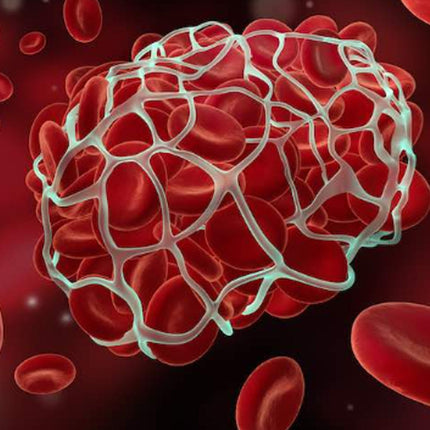
- Posted on
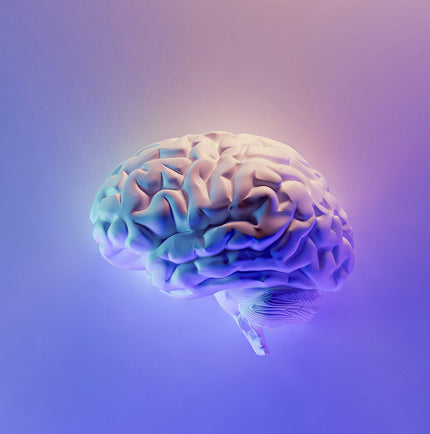
- Posted on

- Posted on
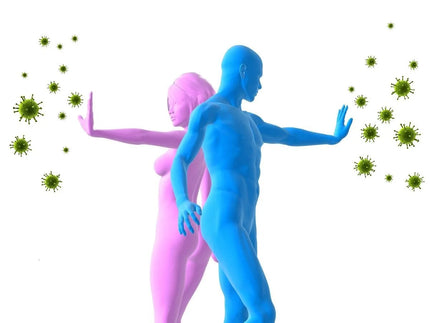
- Posted on

- Posted on

- Posted on
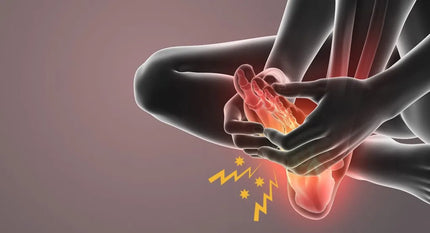
- Posted on

- Posted on

- Posted on

- Posted on
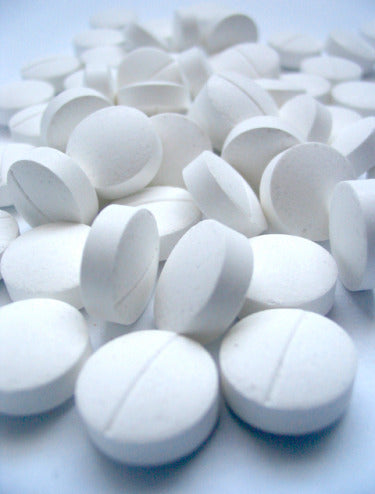
- Posted on

- Posted on

- Posted on

- Posted on

- Posted on

- Posted on

- Posted on

- Posted on

- Posted on

- Posted on

- Posted on
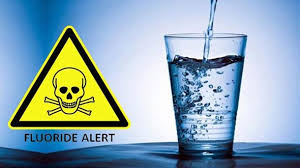
- Posted on

- Posted on
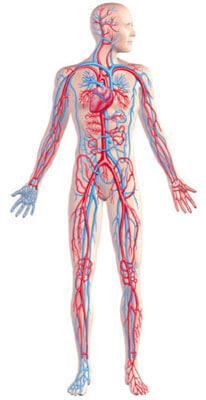
- Posted on

- Posted on

- Posted on
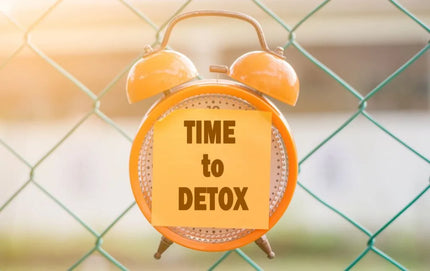
- Posted on

- Posted on
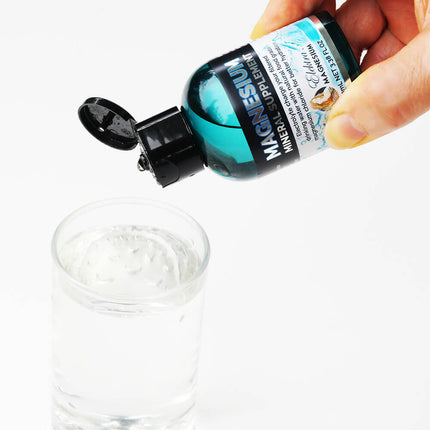
- Posted on

- Posted on

- Posted on

- Posted on

- Posted on

- Posted on

- Posted on

- Posted on

- Posted on

- Posted on

- Posted on

- Posted on

- Posted on

- Posted on
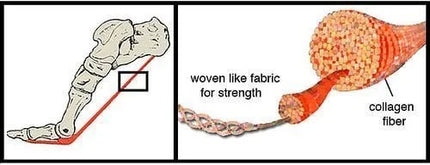
- Posted on

- Posted on
